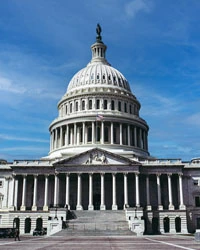Over the past year, interest in electric vehicles (EVs) has grown dramatically. With gas prices hitting record levels, the switch from internal combustion engine cars to electric cars might be even quicker than initially anticipated. But many buyers will need new EV charging stations at home so they can quickly top up their new cars.
Rebates, grants, and incentives have sprouted up nationwide to help build out the charging infrastructure. Over 59% of the US is currently covered by a rebate or incentive for an EV charger. But where do they come from?
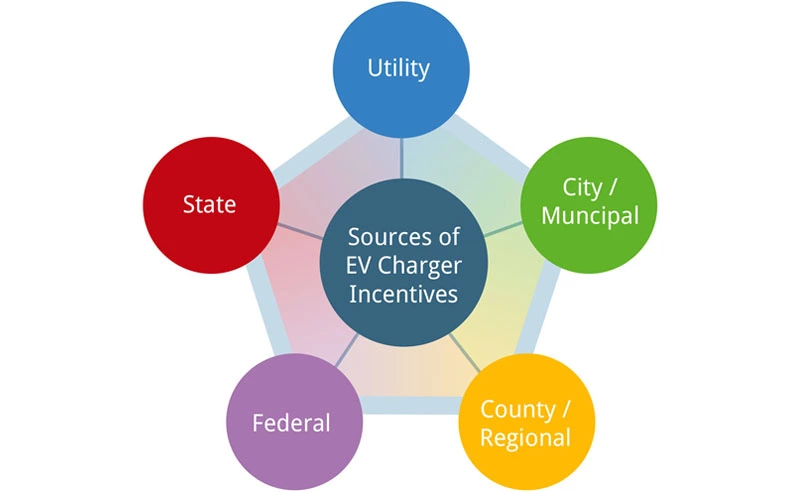
EV Charger Rebates Are Unique
While many people are familiar with energy efficiency rebates for lighting, refrigerators, and water heaters, rebates for EV chargers are entirely different. It makes sense. EV chargers are not an energy efficiency measure; they actually increase electric energy usage.
Because of that, finding and applying for EV charging rebates is quite different. It's not as simple as filling out a mail-in rebate form that you pick up at your local store. In some cases, you'll even need pre-approval before the charger is installed. Typically, the utility is the first place people think to start since they're the primary source of energy efficiency rebates. However, for EV chargers, those are just a portion of what's available. The sources of incentives for EV Chargers fall into five different categories.
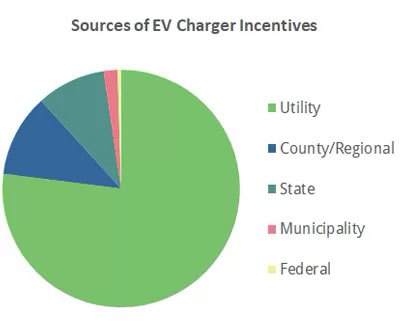
Utility EV Charger Rebate Programs
77% of rebate programs for EV chargers are utility-based programs. However, that's a decrease of 10% since November, meaning that programs seem to be shifting towards state or county/regional programs. Utilities can offer several rebate programs simultaneously to serve the needs of different markets. For example, there might be different programs for homes in economically disadvantaged areas.
County / Regional EV Charger Rebate Programs
EV charger rebate programs can also be on a more regional level. In some cases, it's based on the county. In others, it could be on other geographical factors. One good example is the Air Districts in California. These districts can span towns and utilities and often have their own programs on top of what may be offered by the local utilities.
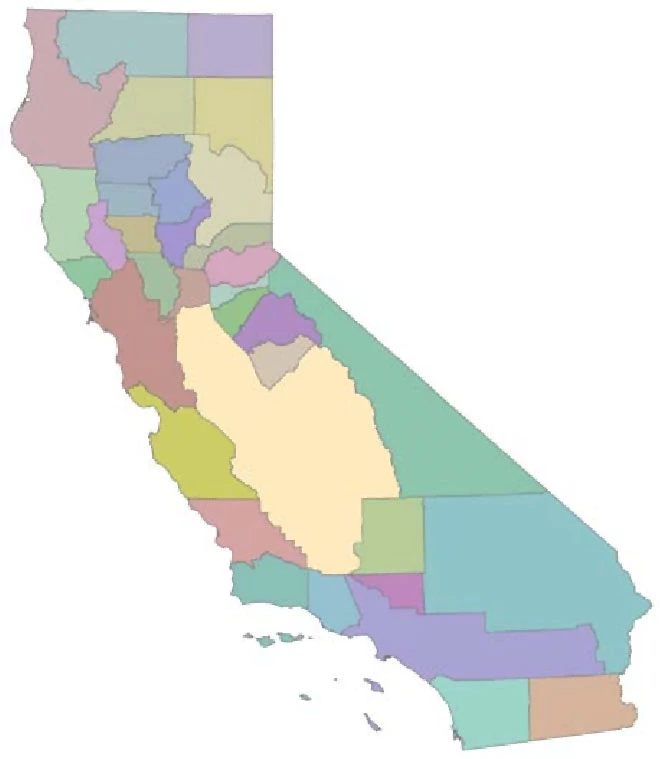
State EV Charger Rebate Programs
Twenty-two states offer a state-wide rebate program for EV charging equipment. Some of these are competitive programs where your project has to be selected, while others are run like a traditional rebate program. In addition, state programs may only be open for a very short period of time.
Since they cover a relatively large area, these programs seem like the easiest to find, but you must pay attention to restrictions involving timing, types of properties, and eligible user types. Other rebate programs can be more beneficial for certain types of customers.
City / Municipal EV Charger Rebate Programs
These types of rebate programs are the most targeted, often serving a single city or municipality. They can be sponsored by the town itself or come from other sources of funding. These programs are the hardest to track as there are nearly 20,000 different towns in the US.
Federal EV Charger Incentive Programs
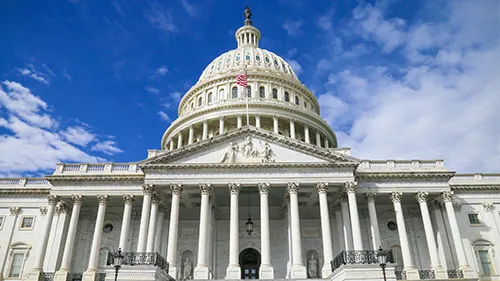
The broadest of all categories, Federal programs provide incentives to the most people. In 2021, residences and businesses that installed EV chargers were eligible for a sizeable tax credit as part of the Federal 30C Tax Credit. This program provided a tax credit of up to $1,000 for residential applications and $30,000 for commercial applications. Unfortunately, that tax credit expired on December 31, 2021. While there have been discussions to bring it back, nothing has been finalized.
Some Programs Can Be Combined
To add even more complexity to this topic, projects can combine some of these programs to maximize savings while other programs expressively prohibit funding from multiple sources.
In addition, in some areas where you can use several programs, you must apply to them in a specific order. Therefore, it's essential to read the fine print and to fully understand all programs that may cover a location.
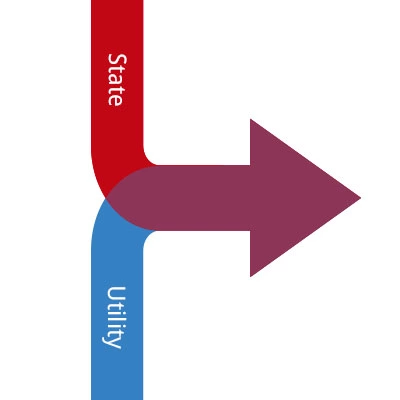
A Constantly Changing Landscape
Rebates for EV chargers are constantly evolving and changing, and the marketplace is moving very rapidly. If your home doesn't currently qualify for incentives, it's essential to keep tabs on it as more programs are expected to come online over the next year.
Which Rebates Can You Use?
A fast EV charger for home use can cost anywhere between $300 and $1,000. Most also require professional installation by an electrical contractor, which can double this price. Luckily, there may be rebates and incentives available to help reduce this cost. Use the tool below to see if you might be eligible for an EV charger rebate.
